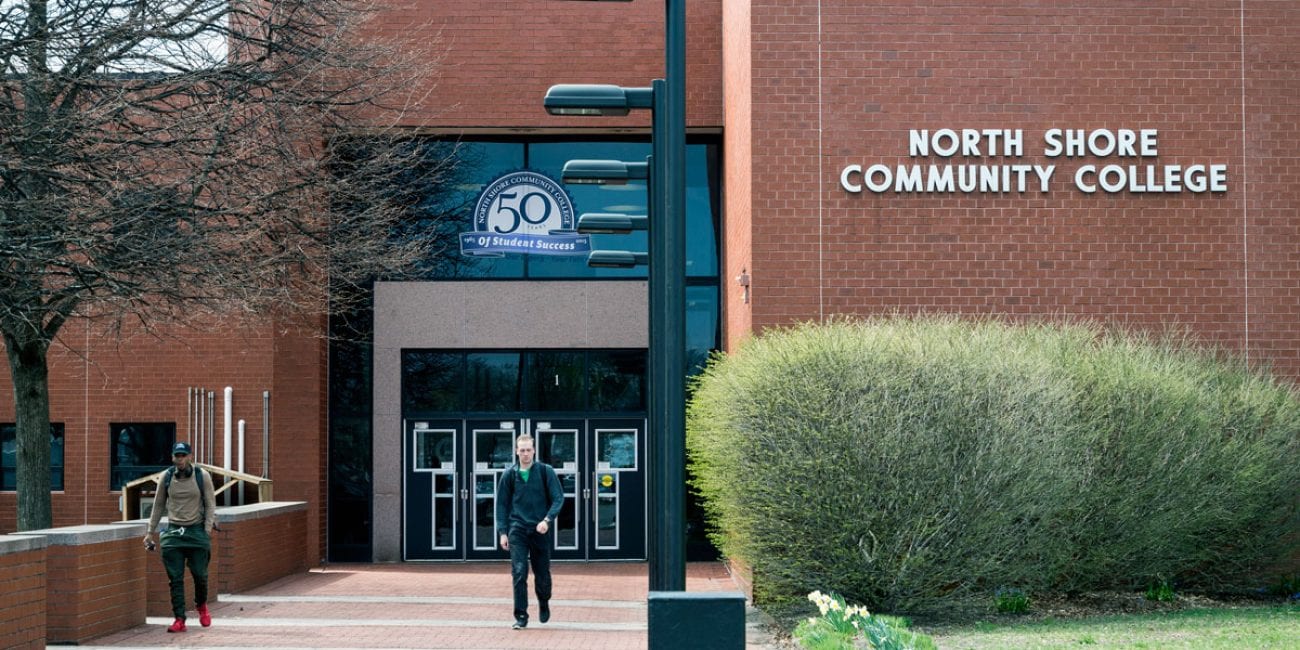LYNN — When a shooter armed with three pistols and a semiautomatic rifle killed nine people at a rural Oregon community college two years ago, North Shore Community College (NSCC) took notice.
But a few weeks later, when a NSCC campus police officer on the Lynn campus was struck by a pellet gun from a passing car, it caused the school to rethink an earlier decision not to arm its security force.
“We had considered arming our campus police in 2010, but rejected the idea,” said Patricia Gentile, the school’s president. “But that incident on our campus two years ago was a telling moment for us.”
The officer was unhurt thanks a bulletproof vest. Following the shooting, the American Federation of State, County and Municipal Employees, the police union, asked the school board to allow campus police to carry weapons.
Being an academic institution, Gentile said her staff scoured the literature about best practices for arming school police and spoke to the chiefs of police in Lynn, Danvers and Middleton, where they have campuses.
“Given estimated response times to our campuses, all three chiefs recommended arming our police,” she said. “And we learned that from 2000-2013 there were about 160 incidents and nearly 80 percent occurred at an institution of higher ed.”
In an employee poll, 62 percent said they would feel comfortable with armed security guards while 25 percent said they would be uncomfortable.
In Danvers, students offered overwhelming support, while the response in Lynn was mixed because many students said they do not feel comfortable around police, Gentile said.
The board approved the move and the 25-member police force was armed last summer. There have been no incidents.
“It’s more about the perception of safety,” Gentile said. “We know an active shooter incident has a low probability but even with that it has a huge impact.”
Lynn Police Chief Michael Mageary said NSCC contacted them last year about the firearm plan and the department agreed to train the schools’ police force.
“It’s been a very good collaboration,” he said.
Gene Labonte, chief of police at Salem State University, joined the school five years ago after serving as a lieutenant colonel in the Connecticut State Police. When he arrived, the campus police force had been armed since 2004.
“It was the norm when I got here,” he said. “We have had no incidents where officers discharged their firearms to any hostile acts toward the school community. There have been reports of gunfire in the city proper, but nothing on campus.”
Labonte said while he wants his 31 officers to be seen on the school’s four campuses, he does not want to create the appearance of a police state.
“We don’t want our officers patrolling the hallways of every academic building or residence hall because we don’t want to educate in that kind of environment,” he said. “But we must ensure that there’s proper resources in place to respond to whatever may happen.”
In June, the Berklee College of Music became the latest school to arm its police officers. Some say the decision by the school was made without hearing from the community while the school argued that officers must be armed in case a shooter is on campus.
In 2015, Northeastern University’s announced it would arm its officers with semiautomatic rifles despite opposition from the Boston Police Department.
“Unfortunately, it’s the world that we live in, and you’d be irresponsible if you’re not prepared to respond,” said Labonte.

